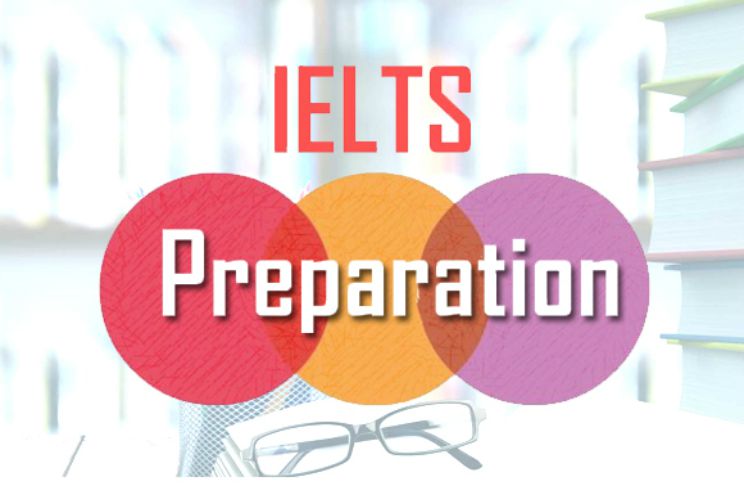Advanced English (IELTS Preparatory) Course
Why take IELTS?
- IELTS – the International English Language Testing System – is the world’s most popular English language test. It is developed by some of the world’s leading experts in language assessment and evaluates all of your English skills — reading, writing, listening and speaking.
- IELTS is jointly managed by British Council, IDP: IELTS Australia and Cambridge Assessment English. In 2018, around 3.5 million people worldwide appeared for IELTS. The test reflects how you’ll use English to study, work and live in an English speaking environment.
- IELTS is accepted by more than 10,000 organisations in over 140 countries. Those organisations include governments, academic institutions and employers with 3,000 in the USA alone.
Importance of the IELTS test
- IELTS is one of the most trusted English language tests around the world with more than 10,000 organisations recognising it internationally.
- It is accepted by educational institutions, companies, professional bodies and government organisations in the UK, USA, Australia, Canada, New Zealand, Singapore, Europe and 140 more countries around the world.
- IELTS is one of the pioneering English language assessments developed by the prestigious University of Cambridge and offered by the British Council.
- The test has been setting the standard for English language testing and is trusted by countries for both academic and immigration purposes.
SYLLABUS OF ADVANCED ENGLISH (IELTS PREPARATORY) COURSE
COURSE DURATION: – 60 HOURS
Mode of Delivery: – ONLINE
Module Rationale:
KSOL-IELTS preparatory course is designed to help prepare test takersfor the International English Language Testing System (IELTS) exam. The course aims to take students with a global IELTS band score of 3 through to score band 7 or above, and contains a wide range of activities to introduce them to IELTS in a comprehensive and competitive way. The course will help learners improve their skills in English – Listening, Speaking, Reading, writing to take the test confidently and get their desired band score.
The course is divided into four sections: Listening, Reading, Writing and Speaking, to reflect the format of the test, and these are broken down into manageable units. Each section begins with an overview of the IELTS test and students who work their way through the course will become familiar with all question types and tasks that they are likely to come across in the test. The skills covered are not restricted to test-taking strategies alone but also reflect the broader range of language that students will encounter in an English-speaking environment, whether at university or in the wider community.
ABOUT THE TEST
There are two versions of the IELTS test.
| ACADEMIC MODULE | GENERAL MODULE |
|---|---|
| for students seeking entry to a university or institution of higher education offering degree and diploma courses | for students seeking entry to a secondary school, to vocational training courses or for people taking the IELTS test for immigration purposes |
| Note: All candidates must take a test for each of the four skills: listening, reading, writing and speaking. All candidates take the same Listening and Speaking modules but may choose between the Academic or General Training versions of the Reading and Writing sections of the test. The two do not carry the same weight and are not interchangeable. | |
TEST FORMAT
| Listening 4 sections, 40 questions 30 minutes + 10 minutes transfer time |
|
| Academic Reading 3 sections, 40 questions 60 minutes |
General Training Reading 3 sections, 40 questions 60 minutes |
|
Academic Writing |
General Training Writing |
|
Speaking 11 to 14 minutes |
|
|
Total test time 2 hours 55 minutes |
|
How is the test marked?
Examiners use detailed performance descriptors when marking IELTS and review a test taker’s ability in:
- Task achievement
- Coherence and cohesion
- Lexical resource
- Grammatical range and accuracy.
Each question in the Listening and Reading sections is worth one mark. The Speaking test has three sections and the Writing task has two sections. Each section is marked according to the above criteria.Scores for each of the four skills are equally weighted. The overall band scores are calculated by taking the mean result for each part of the test.
| Band score | Skill level | Description |
|---|---|---|
| Band 9 | Expert user | You have a full operational command of the language. Your use of English is appropriate, accurate and fluent, and you show complete understanding. |
| Band 8 | Very good user | You have a fully operational command of the language with only occasional unsystematic inaccuracies and inappropriate usage. You may misunderstand some things in unfamiliar situations. You handle complex detailed argumentation well. |
| Band 7 | Good user | You have an operational command of the language, though with occasional inaccuracies, inappropriate usage and misunderstandings in some situations. Generally you handle complex language well and understand detailed reasoning. |
| Band 6 | Competent user | Generally you have an effective command of the language despite some inaccuracies, inappropriate usage and misunderstandings. You can use and understand fairly complex language, particularly in familiar situations. |
| Band 5 | Modest user | You have a partial command of the language, and cope with overall meaning in most situations, although you are likely to make many mistakes. You should be able to handle basic communication in your own field. |
| Band 4 | Limited user | Your basic competence is limited to familiar situations. You frequently show problems in understanding and expression. You are not able to use complex language. |
| Band 3 | Extremely limited user | You convey and understand only general meaning in very familiar situations. There are frequent breakdowns in communication. |
| Band 2 | Intermittent user | You have great difficulty understanding spoken and written English. |
| Band 1 | Non-user | You have no ability to use the language except a few isolated words. |
| Band 0 | Did not attempt the test | You did not answer the questions. |

LEARNING OUTCOMES
At the end of the course students will be able to find :
- a description of each part of the test and what you have to do to achieve a good band score
- the assessment criteria that tell you what your examiner is looking for
- exam techniques to help you tackle all types of test questions
- tips and strategies for successful test preparation and for improving your English ability
- practice tests to help you know what to expect on test day.
METHODOLOGY :
In-class practice with the use of audio-visual aids, PPTs, Listening Audio Exercises with Transcripts, Record and Playback followed by Feedback, Speaking activities to improve vocabulary and fluency , Writing activities to improve scores in the actual test, Reading Skills Practice, Tips and Techniques through activities for all the four skills, Vocabulary and grammar for IELTS. Practice /Mock & Very Similar tests to grade the students’ performance and improve test scores, day -to-day doubt clearing sessions .etc
Assessment Strategies :
- Students’ progress will be periodically assessed through MOCK IELTS tests
- All components i..e Listening, Speaking, Reading,writing of the test will be repeatedly evaluated to help students keep tab on their progress.
Components
Diagnostic test : At the beginning of the course to gauge the students entry level score
Mid- Course Mock test : Halfway through the course to help monitor learners’ progress
Final Mock Test : To predict the learners’ expected band score and préparation level
| TOPIC | KEY FEATURES | DURATION | |
|---|---|---|---|
| 1. |
LISTENING |
– What does the speaker mean exactly?
-What are ‘signpost words’?
-How do intonation and word stress help us to understand? |
15HOURS |
| 2. |
READING
|
– Short-answer questions
|
15 HOURS |
| 3. |
WRITING |
– Expressing views 9. Developing an argument 10. Writing your answer |
15HOURS |

